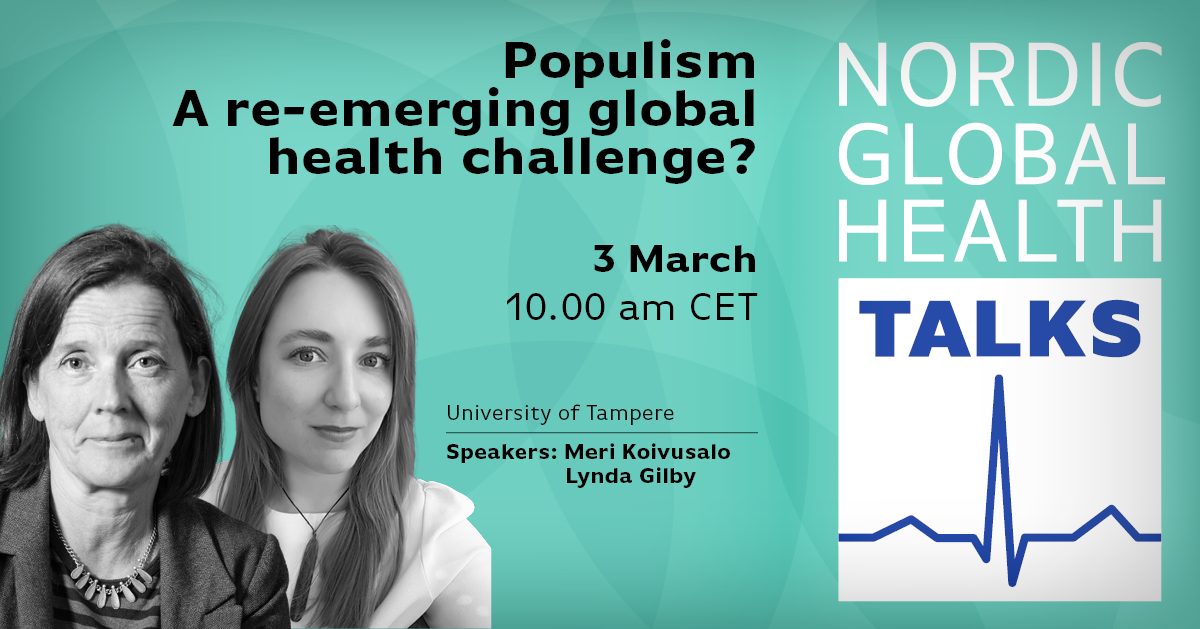Nordic Global Health Talks are a Copenhagen University initiative – a monthly webinar series about global health from Nordic universities. You can register to future talks here: https://globalhealth.ku.dk/nordic-talks
The webinar was attended by approximately 170 individuals and was recorded for future use.
In addition to the questions and answers answered during the session, we also wished to respond to the audience’s questions that remained unanswered due to lack of time.
Please see the outstanding questions answered below:
Are we lacking sufficient evidence for SRHR against anti-SRHR?
There are plenty of literature studies on the importance of SRHR and how access to SRH services saves lives – see our open access commentary on the importance of including SRHR as part of Universal Health Coverage. The reasons for excluding SRHR are usually political, and not based on evidence as can be seen with respect to impact of Mexico City policy on abortion.
While the primary question concerning SRHR is about rights not scientific evidence, it is good to recognize that we have sufficient evidence on un-safe abortion.
WHO also maintains a global database on abortion policies.
Do gender inequalities at global health bodies like WHO, UNICEF contribute significantly to this topic?
Our analysis applied to UN. It is often expected that improved gender balance would contribute to a more sensitive approach to SRHR, but it is not clear how important this would be in practice as one could also argue that it is more about power and politics than representation. Gender inequalities can influence how any organization works and considers SRHR, but does not necessarily do so. WHO has actively addressed gender inequalities in its governance structures under Dr Tedros.
What even more fundamental changes or developments might be behind the attacks on SRHR? Paradigm changes perhaps?
The lobbying activities have been investigated by Open Democracy.
It is far from clear that the situation would imply a fundamental change, but it does show what can be achieved as a result of active lobbying. On the other hand, we can also see positive changes in some countries in recognizing SRHR. It is thus a good reminder that global commitments on SRHR are not as solid as we may think and could be pushed back if this is allowed to happen.
How can these populist organisations be screened or prevented from impacting on policy documents – when there seems to be a lack of transparency/disguised agendas?
The disguised agendas is a relevant point, as quite often there is more general support for SRHR. The same applies also to other policy issues, which can be influenced disproportionally by vocal well-funded interest groups. However, denying access for some and not for others just because they oppose it would be problematic. It is important to expose the objectives of populist parties and that governments have courage to be explicit in their support of SRHR in spite of the pressure otherwise.
Thank you all for your fantastic attendance and contributions to our session!

